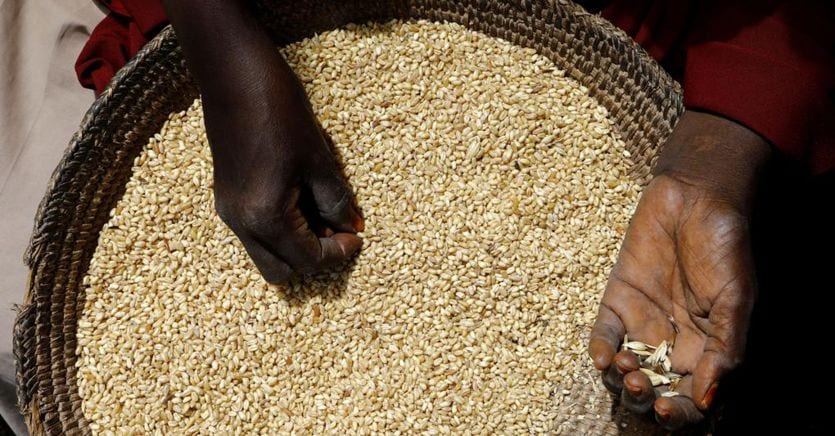Listen to the audio version of the article
The alarm echoed for weeks in 2022, at the time of the first tug of war with Moscow. It can only come back to the fore now: the non-renewal of the so-called wheat pact, threatened by Russia, risks causing food insecurity to explode on an international scale, raging on the markets most exposed to cereal flows arriving from Russia and Ukraine. “Hundreds of people will pay the price” of Moscow’s tear, summed up the UN secretary general Anthony Guterres fearing a domino effect on vulnerable economies already in the grip of inflation.
Among the most immediate victims are the countries of Africa, especially sub-Saharan Africa: one of the regions to record the heaviest shares of agricultural imports from the “breadbasket of Europe”, with repercussions that accentuate previous crises. The UN counts at least 60 million people reduced to hunger in seven East African countries and fears “the impact of a new shock” on an area battered by the interweaving of political turmoil, terrorist violence and climate crisis. The suspension of the agreement could inflict a drastic one, favoring price increases and social and political instability already on the rise.
The agreement on wheat and the weight of the “breadbasket of Europe”
The object of the dispute is the extension of the Black Sea Grain Initiative, signed in July 2022 and in force until the 17th of the same month in 2023. The text signed then by Russia, Ukraine, Turkey and the UN, under Ankara’s mediation, allowed the unblocking of cereal exports along the Black Sea routes: a hub crippled by the war in Ukraine, when the Russian army wrested control of ports like Odessa from Kiev or interfered with the flows of an area crucial for international grain supplies. In 2021, on the eve of the conflict, Kiev exported wheat for the equivalent of almost 5.9 billion US dollars, a figure that made it the fifth country in the world for exports in the sector.
Russia topped the same ranking with $8.92 billion. Traffic became congested with the conflict in Eastern Europe, exacerbating the risks of food insecurity and producing an insidious rise in prices especially for the most fragile economies anchored to the import of grain produced abroad. The May 2022 agreement eased the grip, without preventing the production meltdown suffered by Ukraine. Now the unknown factor returns, with the added burden of more than a year of conflict and the turbulence that has spread across various emerging markets.
Ukraine, Erdogan: “I think Putin wants to continue the wheat deal”
The impact on Africa and the risk of food insecurity
The African economies above all could pay the price, already indicated as the first victims of the swirl of inflation and export bottlenecks triggered between the war in Ukraine and the aftermath of the Covid pandemic.
